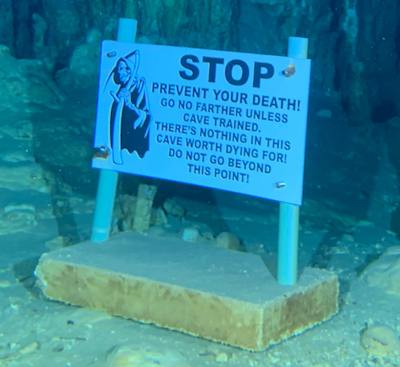In Mark Powell's books "Technical Diving an Introduction" and "Deco for Divers" he lays out his own definition of "technical" diving as:
"...involving diving deeper than recreational limits [Tyler: >130ft] for extended periods of time [Tyler: decompression obligation] and using mixed gases other than air. [Tyler: Anything other than EAN21]"
This seems extremely straight forward, however there are arguments on the Internet on a practically weekly basis about the definition of "technical". Some agencies, such as SDI, would prefer to not even use the word "Technical" as a sub-class of non-professional scuba diving...but instead list all non-professional scuba diving as "Recreational" and the diving that is generally done by most scuba divers as "sport diving". I think that horse left the barn years ago and won't be coming back. So we're going to stick with Recreational vs Technical as the differentiator within the non-professional realm of scuba diving.

In my opinion, it's not about the diver, it is about the dive. More than once someone has asked me if I was a "cave diver" because I was wearing a Drysuit, using a Backplate / Wing BCD and had a long hose setup when diving the local quarry that has a maximum depth of 40ft. None of these things make me a "technical diver" and the dive is most certainly not a "technical dive". And I have nowhere near the skills and experience to be going cave diving.
| Recreational Dive | Technical Dive |
|---|---|
|
Anything that doesn't fit in the list to the left, which might include:
|
Some items that do not automatically make you a technical diver or the dive technical:
- Use of a drysuit
- Use of a Backplate / Wing as your BCD
- Carrying a dSMB
- Carrying a reel
- Using a canister light
- Carrying a Pony Bottle
- Using a Long-Hose configuration
- Using a Dive Propulsion Vehicle (DPV)
- Limited penetration of a Wreck
- Diving in a Cavern or the "in the light zone" portion of a Cave
- Diving in a team
It is totally okay to do recreational dives your entire life. You don't have to be a "technical diver" to be "good" at diving and enjoy a dive. I'd rather dive with someone who rents their gear, has awesome trim/buoyancy, command of the basic skills, fantastic communication and no ego. Instead of someone who has a cave certification, owns 4 rebreathers and has none of the above. If you want to know if you are getting better, compare yourself to your yesterday self. Not anybody else.
